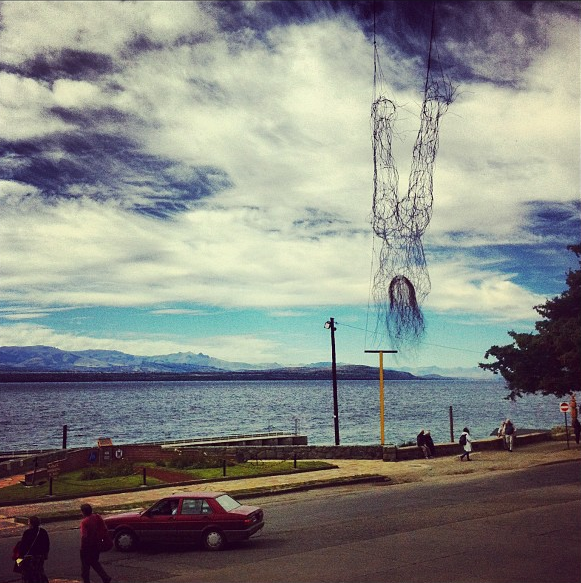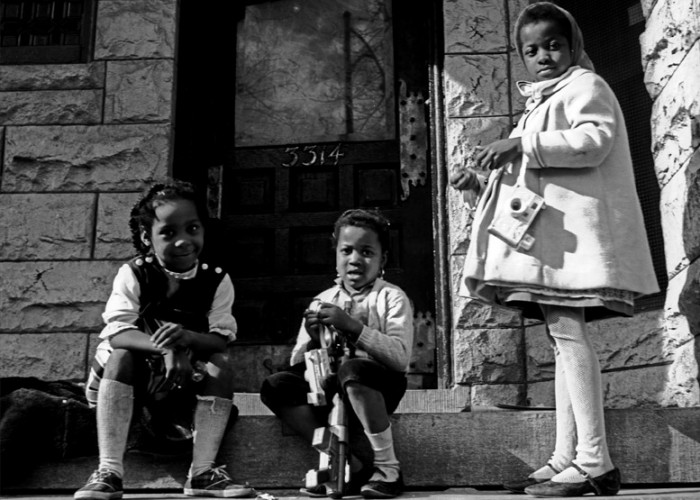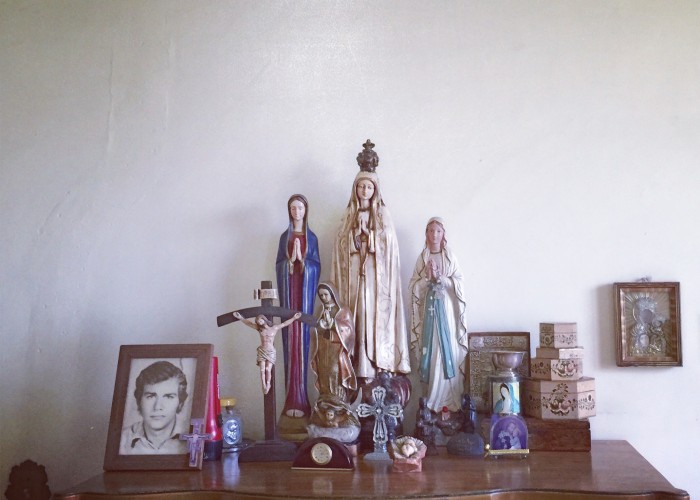Tufts of Dark Hair Attached to Indeterminate Bodies
Lincoln Michel
The wind whipped salty air against Silas Woodrow’s face, but his daughter was nowhere in sight. She was always doing things like this.
Silas walked slowly back to the station and wiped his neck and face with napkins from the café counter. His leg ached. He sat in a chair and looked up at the menu. The doctors had told him he couldn’t order espressos or anything acidic. He wondered if there was anything tasty he could eat in the whole damn country.
A man in a tightly tailored suit kept opening and looking into his leather briefcase. Silas figured he was in the mafia. The briefcase probably contained drugs or money or cut-off pinky fingers.
Silas tried to remember why the wedding was in Italy anyway. Someone on one side of the damn dentist’s family must have been born here.
Silas dragged his bag out into the road. He got into a cab and tried to pronounce the name of the villa. The cab driver turned his head. Silas said it again, louder, and pointed at a computer printout he’d made before leaving.
“How much?”
“Thirty Euro.”
They were rounding up a hill overlooking rocky beach.
“What?” Silas said. “I’m not paying thirty dollars to go into town.”
“Euros. No dollars.”
“That’s bullshit. It’s right up this hill.”
“You want to walk?”
The cab driver grinned and pulled over. Silas got out and lifted his bag from the trunk.
“Okay,” the driver said, leaning out of the window. “For you, twenty.”
Silas grunted and moved to the side of the road. The cab driver stayed there a minute, then shrugged. He made a U-turn and went back down to the station. Silas pulled out his printout and looked at the map. He started walking up the hill with his cane out front and his bag behind. It had wheels, but they didn’t work well on the grass.
Silas thought about how angry his daughter would be that he didn’t wait for her, and how angry he was that she was late and he was walking uphill on a gimp leg. He wondered who would get to be angrier for the next few days.
One of the bag’s wheels hit a rock and the wheel popped off. The bag twisted out of Silas’s hand. The road went on up for a long ways. It had been five minutes and his shirt was already heavy with sweat.
“Dammit,” Silas said. He hit the suitcase with his cane and walked over to a set of old stairs that headed down to the pebble beach. He held onto the steel railing with one hand and used his cane with the other. It took him twenty minutes to get to the beach.
When he got to the bottom everyone was naked. Only a few children kicking a green ball had suits on. He sat on a large rock near the staircase. A woman twenty feet away from him was rubbing oil on a man’s buttocks. Silas could see the coarse hairs in his crack.
Silas felt excited and angry. He looked out at the different flattened and oily breasts. The nipples on all of them were very dark. His throat felt dry and he reached around into his pocket and pulled out a small camera.
A tall man with bushy hair pushed down under a baseball hat ran over.
“No, no,” the man said. “Nessun foto.”
The man was clothed and carrying a tray of empty glasses. He had a server’s pad in his other hand.
“How much for a diet soda?” Silas licked his lips.
“No, no, no. Nessun foto.” The man was shaking his finger. Silas put the camera back in his pocket.
“Quanto for a Diet Coke?”
The man shook his head now. “Che cosa?”
“Screw it,” Silas said. He leaned back and closed his eyes. The hot, salty air moved over him. When he opened his eyes there was a young girl looking at him. She must have been about twelve. She wore a two-toned blue bikini and large dark sunglasses.
“Americano?” she said.
“What?”
“I could tell.” She sat down a few feet away from him and stared out at the waves. “I like practice English.”
The beach was made of small rocks and Silas’s legs and butt hurt. The girl looked almost like his daughter when she was a teenager, at least as he remembered her. Same sharp mouth.
“You look sick. Okay?” The girl pressed the backs of her thin fingers against his forehead.
“Excuse me?” he said. “Don’t you have parents?”
“They sleep.” She waved at a pair of people lying on their backs. From this angle they looked like two clumps of dark hair attached to indeterminate bodies. Silas could make out only their toes and two other tufts of dark hair, one of which had a small penis curling out of it.
“You wait,” the girl said and stood up and walked to her sleeping parents. She came back with a glass of dark wine. The wine was warm but rich and helped his throat. He cocked his head at the girl.
“You shouldn’t be talking to strangers.”
“It is okay. I learn new things.”
“Don’t they have pedophiles in Italy?”
The girl gave him confused look and then asked him his name. She tried to pronounce it and told him it sounded funny and he grunted.
“I am Portia,” she said.
“Okay,” he said.
“Why all your clothes?” The girl waved her hand like a salesman over all the naked bodies.
Silas finished the wine. It was so hot his clothes felt like they had melted onto his skin. A few of the nude people were looking at him and the girl, whispering. He wondered if being clothed in this backwards country made you look like a pervert. Silas put his watch and wallet in his shoe and covered them when his socks then covered those with his pants. The girl was lying on her back and seemed to have her eyes closed. He scooted his underwear off without standing up and rolled them into his pants’ pocket.
His skin looked translucent. He knew it would burn quickly. The people were still looking at him, but no longer whispering. He lay on his stomach with his shirt under his crotch and belly.
“How long in Italia?” The girl sat back up and looked at him.
“Hopefully not long.”
Hot rocks and sand and dirt pressed into his skin. He could feel a cool wind moving over his buttocks.
“And where you come from?”
“North Carolina.”
“Ah,” the girl said and made gun fingers and shooting noises. “With the cowboys!”
“No,” he said. “Not with the cowboys.”
He rolled onto his back and put his shirt over his crotch. Up at the top of the cliff he could see people moving around. They were shouting something. He squinted, then turned away.
“How is the water?”
He watched the browned bodies of strangers dipping in and out of the waves.
“Very nice. Always nice in Italia.”
Two people were coming down the stairs now. One was carrying his broken bag. People on the beach were turning around to look up the staircase. A woman stood up in front of him and he could see her private lips beneath the hair.
“I’m going in,” he said.
“What is that woman shouting?”
“She sounds crazy,” Silas said. He felt an unbearable weariness flowing through his bones. He didn’t want to deal with this now or ever.
“Wait,” the girl said. “Sea-less. That is you!”
His daughter kept coming down the stairs and shouting. Silas stood up with his cane.
“Let’s get away,” he said. “Listen to that woman scream. She is obviously an insane person!”
He looked out at the rolling waves. The water was bright blue and looked good enough to drink. He wanted to wade in until the water went over his head. He could stay down there in the warm depths with the fish and the seaweed, suspended by the bright sea, all the sounds of the land drowned out.
He gripped the young girl’s hand and began moving toward the water.
* *
Image: Pola Oloixarac
[ + bar ]
Hoag Holmgren
reniform
free-arm comfort of raptor shadows splashing skin with dusk among the dwarf pines shaped by wind eyes carved on the antlertipped spear haft remember the damselfly sifting through mulberry fumes the... Read More »
The Turtle & the Fox
Debora Kuan
Take him for all in all, I shall not look upon his like again. -Shakespeare, Hamlet
My first encounter with my colleague Ivan Fox’s... Read More »
“I’m still falling” — Jeffrey Goldstein on Vivian Maier
Interview by Eliana Vagalau
Jeffrey Goldstein’s life took a very dramatic turn when he came into the possession of a large part of Vivian Maier’s artistic legacy. Now... Read More »
Islands
Gabriela Poma
The sleeping pills had finally worn off.
Her left eye opened, a slit, and she remembered to breathe.
Yo no entiendo nada de esto.
The world seemed... Read More »








 sending...
sending...